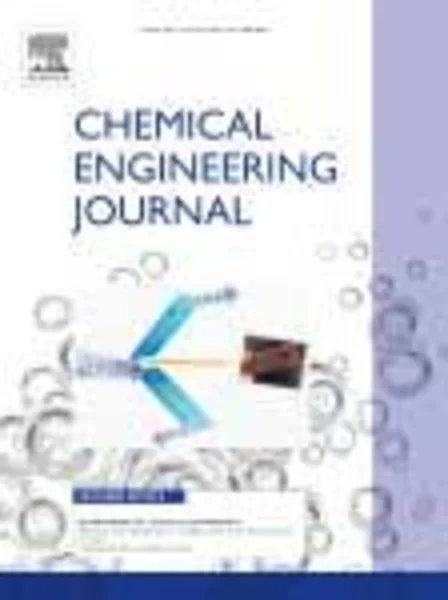-
sulfate radical-induced degradation of 2,4,6-trichlorophenol: a de novo formation of chlorinated compounds
جزئیات بیشتر مقاله- تاریخ ارائه: 1392/01/01
- تاریخ انتشار در تی پی بین: 1392/01/01
- تعداد بازدید: 697
- تعداد پرسش و پاسخ ها: 0
- شماره تماس دبیرخانه رویداد: -
the degradation of 2,4,6-trichlorophenol (tcp) by sulfate radical generated via co(ii)-mediated activation of peroxymonosulfate (pms) was examined. the influencing factors, such as substrate concentration and ph were investigated. the initial ph and its adjustment orders significantly affected the tcp degradation and mineralization. several chlorinated products were detected, as well as some carboxylic acids, such as glycolic acid and oxalic acid. many polychlorinated (chlorine atom number ⩾3) aromatics (e.g. 2,4,5-trichlorophenol, 2,3,4,6-tetrachlorophenol, 2,3,5,6-tetrachloro-1,4-benzenediol) and even their ring-opening products (e.g. 2,4-dichloro-5-oxo-2-hexenedioic acid, 1,1,3,3-tetrachloro-2-propanone) were identified, indicating a de novo formation mechanism of organohalogens may be involved in tcp degradation. the released chlorine atoms from tcp and/or dichloride radicals activated by sulfate radicals played an important role. this finding may have significant scientific and technical implications for utilizing co/pms reagent to detoxify chlorinated pollutants.
مقالات جدیدترین رویدادها
-
استفاده از تحلیل اهمیت-عملکرد در ارائه الگوی مدیریت خلاقیت سازمانی و ارائه راهکار جهت بهبود
-
بررسی تاثیر ارزش وجوه نقد مازاد بر ساختار سرمایه شرکت های پذیرفته شده در بورس اوراق بهادار تهران
-
بررسی تأثیر سطح افشای ریسک بر قرارداد بدهی شرکت های پذیرفته شده در بورس اوراق بهادار تهران
-
بررسی تأثیر رتبه بندی اعتباری مبتنی بر مدل امتیاز بازار نوظهور بر نقد شوندگی سهام با تأکید بر خصوصی سازی شرکت ها
-
تأثیر آمیخته بازاریابی پوشاک ایرانی بر تصویر ذهنی مشتری پوشاک ایرانی (هاکوپیان)
-
حسابداری منابع انسانی و افزایش کارایی و اثربخشی بهره وری در سازمان
-
بررسی اندیشه های کامران دیبا در طراحی فرهنگسرای نیاوران
-
رهیافت های زیبایی در پایداری شهر (با نگاهی به ارزش های کالبدی بافت تاریخی)
-
تاثیر فعالیت های لرزه ای در ناپایداری شیروانی های سنگی در منطقه آوج
-
بررسی تأثیر آموزش بر تغییر قند خون بیماران دیابتی
مقالات جدیدترین ژورنال ها
-
مدیریت و بررسی افسردگی دانش آموزان دختر مقطع متوسطه دوم در دروان کرونا در شهرستان دزفول
-
مدیریت و بررسی خرد سیاسی در اندیشه ی فردوسی در ادب ایران
-
واکاوی و مدیریت توصیفی قلمدان(جاکلیدی)ضریح در موزه آستان قدس رضوی
-
بررسی تاثیر خلاقیت، دانش و انگیزه کارکنان بر پیشنهادات نوآورانه کارکنان ( مورد مطالعه: هتل های 3 و 4 ستاره استان کرمان)
-
بررسی تاثیر کیفیت سیستم های اطلاعاتی بر تصمیم گیری موفق در شرکتهای تولیدی استان اصفهان (مورد مطالعه: مدیران شرکتهای تولیدی استان اصفهان)
-
بررسی ضرورت کشاورزی شهری در راستای دستیابی به برنامه ریزی سلامت در کلان شهر مشهد
-
بررسی رابطه بین ابعاد رهبری پدرسالارانه و آوای سازمانی با تاکید بر نقش تعدیل کننده تسهیم دانش کارکنان شعب بانک صادرات استان گلستان
-
مکانیزم جایگاه قرینه و تبیین دلالت اثبات دعاوی
-
تأثیر تسهیم دانش، تمایل به یادگیری و فناوری اطلاعات بر فراموشی سازمانی هدفمندبا مطالعه نقش تعدیل گر عدالت سازمانی ادراک شده
-
an examination of crash severity differences between male and female drivers, using logistic regression model




سوال خود را در مورد این مقاله مطرح نمایید :